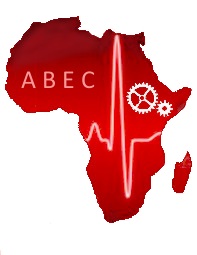
OS4BME (Open Source for Biomedical Engineering) was conceived at the Research Center E. Piaggio of University of Pisa and FabLab Pisa by Arti Ahluwalia (Professor of Bioengineering), Daniele Mazzei and Carmelo De Maria (Biomedical Engineers, co-founders of FabLab Pisa and researchers at the Center).
The aim of the project is to adapt the DIY (Do It Yourself) and Making-Fabing philosophy to the realization of simple low-cost biomedical devices with a high ethical, economic and health impact, particularly for developing African countries.
The first action of the project was the Open source design and rapid prototyping for Biomedical Engineering” course at the 2nd Biomedical Engineering Innovators Summer School at Kenyatta University in Nairobi from 12th to 16th August 2013.
Funded by UNECA (the “United Nations Economic Commission for Africa”), the course was attended by students and lecturers from ABEC, the African Biomedical Engineering Consortium (www.abecafrica.org), a group of 10 African Universities with a common missionto promote excellence in human capital development.
The course involved setting up a 3D printing system from scratch, and design of a neonatal monitoring device from first principles using open source design and open source electronics based on the Arduino platform. Overall, the action was overwhelmingly successful. Most students and staff were unaware of the existence of tools such as Arduino, FreeCad, Slic3r, Media Wiki etc, let alone the power and implications of open source design and prototyping. This experience was instrumental in bringing this knowledge to the participants, and their keen interest throughout, particularly on 3D printing and rapid prototyping was apparent.
Although there are several resource sharing platforms available as well as several courses on rapid prototyping, digital design and embedded electronics, none of these is dedicated to biomedical devices. This is because biomedical devices must be designed with safety and efficacy in mind, and they must adhere to regulatory standards. The intensive course held in Nairobi addressed safety, ergonomics, biomedical device design and rapid prototyping in an integrated manner, and is the first of its kind.
The OS4BME Project is officially supported byArduino who donated Arduino Kits for Kenyatta Universityand FabLab Nairobi!
http://wiki.fablabpisa.org/index.php?title=OS4BME_Africa
Click here to download the OS4BME long paper, awarded "Best Paper" at IARIA ICDS 2014.

